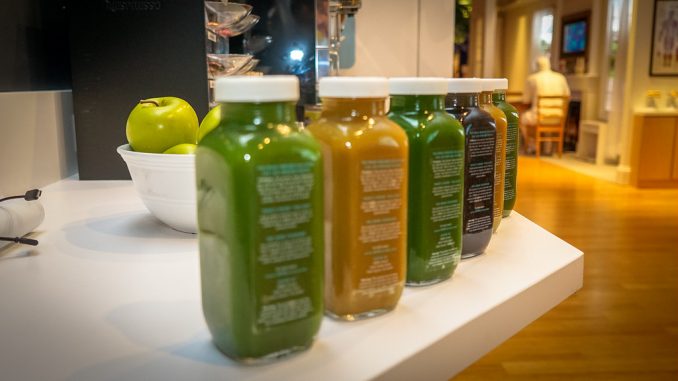
A recent article by Medical News Today outlined the major potential risks and benefits of going on a juicing cleanse. There is a lot of debate and overstated facts around the topic of juice cleanses. To be sure, there’s a lot more that we don’t know than we do. Part of the reason for this is that not all cleansing practices are the same, not to mention the personal health profile of the person engaging in the cleanse. Likewise, there’s a big difference between asking about the short-term and long-term effects of a juice cleanse.
What is a Juice Cleanse?
A juice cleanse is a temporary diet regimen that involves getting all of one’s calories from fruits and vegetables, usually in an attempt to detox the body and/or lose weight (in the short-term). It is usually done for a period of 3-10 days. We recommend shorter routines when we recommend cleanses at all, especially for those who are unable to set aside the time to endure the resulting fatigue that comes from longer cleanses.
Moreover, we think even short-term cleanses are better for general detox than weight loss. Instead, for weight loss, we recommend juicing to reduce calorie intake during the morning or evening hours on a daily basis, while maintaining a more well-rounded diet overall.
Our Takeaway
It’s good to get a general sense that a juice cleansing can have both positive and negative effects. It’s important to understand how to modify a juicing habit to stay healthy and maximize the potential benefits of a cleanse. With this in mind, don’t forget to read the fine print.
- Pros: Rather than simply think of it as “detoxing,” take a longer look at the specific, if anecdotal evidence, that juice cleanses can help with inflammation, immune and digestive systems. It’s no coincidence that juicing is popular with people with Crohn’s Disease, as well as other auto-immune and GI diseases of a chronic nature.
- Cons: Though we were familiar with this fact already, what really stood out to us in terms of the downside was the information about oxalate acid and kidney function. If you’re going to do a juice cleanse, we recommend moderating how much spinach, beets, rhubarb, and other high-oxalate foods you use for ingredients. Even if you have no history of kidney problems. Also, don’t assume that hydrating juices mean you don’t need to keep drinking plenty of water, which can help your body flush these acids.

Leave a Reply